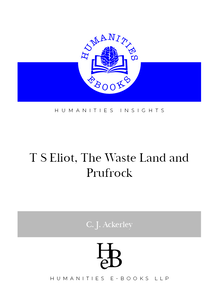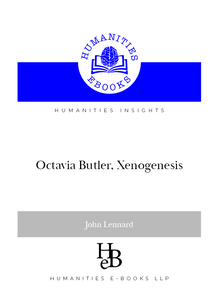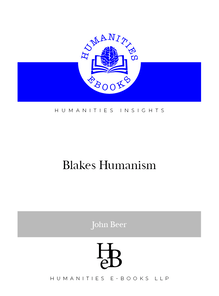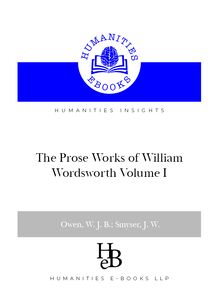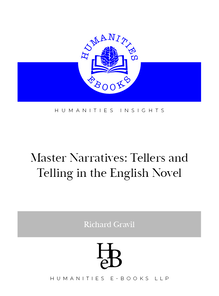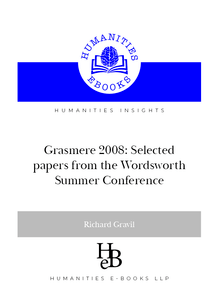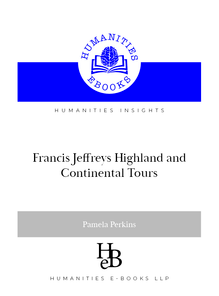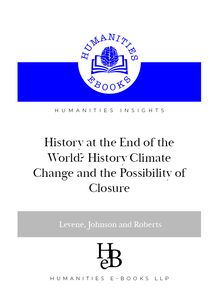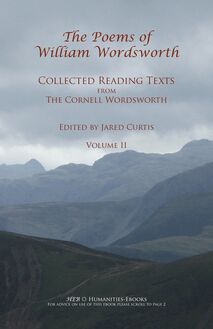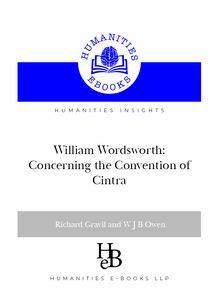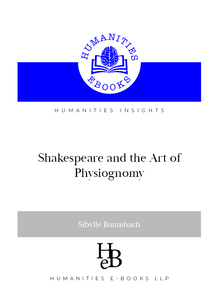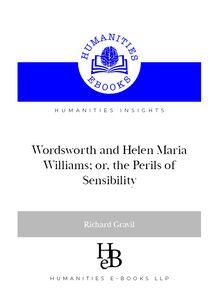-
 Univers
Univers
-
 Ebooks
Ebooks
-
 Livres audio
Livres audio
-
 Presse
Presse
-
 Podcasts
Podcasts
-
 BD
BD
-
 Documents
Documents
-
- Cours
- Révisions
- Ressources pédagogiques
- Sciences de l’éducation
- Manuels scolaires
- Langues
- Travaux de classe
- Annales de BEP
- Etudes supérieures
- Maternelle et primaire
- Fiches de lecture
- Orientation scolaire
- Méthodologie
- Corrigés de devoir
- Annales d’examens et concours
- Annales du bac
- Annales du brevet
- Rapports de stage
La lecture à portée de main
141 pages
English
Découvre YouScribe en t'inscrivant gratuitement
Je m'inscrisFivefathers: Interviews with late Twentieth Century Scottish Poets , livre ebook
Découvre YouScribe en t'inscrivant gratuitement
Je m'inscris
Obtenez un accès à la bibliothèque pour le consulter en ligne
En savoir plus
En savoir plus
141 pages
English
Obtenez un accès à la bibliothèque pour le consulter en ligne
En savoir plus
En savoir plus

Description
Five interview-based essays celebrating Sorley MacLean, Iain Crichton Smith, George Mackay Brown, Norman MacCaig and Edwin Morgan.
Sujets
Informations
| Publié par | Humanities eBooks |
| Date de parution | 11 janvier 2021 |
| Nombre de lectures | 0 |
| EAN13 | 9781847600516 |
| Langue | English |
| Poids de l'ouvrage | 2 Mo |
Informations légales : prix de location à la page 0,0200€. Cette information est donnée uniquement à titre indicatif conformément à la législation en vigueur.
Extrait
HUMànITIes-EBOOks Genre FIcTIOn SIghTlInes
FTivaemfaortahePriserce The Immortals Interviews with late Twentieth-Century Wild Magic Wolf-Speaker Scottish Poets The Emperor Mage TheRealms of the Gods
COlIn NIchOlsOn By JOhn Lennàrd
PubLiCatioNData
Text © Colin Nicholson, 2007.
The Author has asserted his right to be identiîed as the author of this Work in accord-ance with the Copyright, Designs and Patents Act 1988. Copyright in images and in quotations remains with the sources given. Every effort has been made to trace the holders of copyright materials. If any other than those acknowledged on page îve have not been traced the author will be glad to make the necessary arrangements at the îrst opportunity.
Published in 2007 by Humanities-Ebooks LLP.Tirril Hall, Tirril, Penrith CA10 2JE HowtouSEaDobEREaDER
*To use the navigation tools, the search facility, and other features of the toolbar, this Ebook should be read in default view. *To navigate through the contents use the hyperlinked ‘Bookmarks’ at the left of the screen. *To search, expand the search column at the right of the screen or click on the bin-ocular symbol in the toolbar. *For ease of reading, use <CTRL+L> to enlarge the page to full screen *Use <Esc> to return to the full menu. *Hyperlinks appear in Blue Underlined Text. To return from an internal hyperlink use the ‘previous view’ button and repeat if necessary. *For a computer generated reading use <View>Read out loud> LiCENCEaNDPERmiSSioNS
Purchasing this book licenses you to read this work on-screen and to print one copy for your own use. Copy and paste functions are disabled. No part of this pub-lication may be otherwise reproduced or transmitted or distributed without the prior written permission of both the copyright owner and the publisher. Making or dis-tributing copies of this book constitutes copyright infringement and would be liable to prosecution. Thank you for respecting the rights of the author. iSbN 978-1-84760-051-6
FIvefàThers inTervIeWs WITh làTe tWenTIeTh CenTUry ScOTTIsh POeTs
COlIn NIchOlsOn
tIrrIl: HUMànITIes-EBOOks, 2007
COnTenTs
A Note on the Author
Preface
Acknowledgements
Introduction
1. Sorley MacLean: Against an Alien Eternity
2. Iain Crichton Smith: To Have Found One’s Country
3. Norman MacCaig: Such Clarity of Seeming
4. George Mackay Brown: Unlocking Time’s Labyrinth
5. EdwinMorgan:LivingintheUtterance
Bibliography
Publishers’ websites
a NOTe On The aUThOr
COlIn NIchOlsOn Is à PrOfessOr Of EIghTeenTh-cenTUry ànd mOdern LITeràTUre àT Ed-InBUrgh unIversITy, Where hIs TeàchIng InclUdes à seMInàr In mOdern ànd COnTeM-pOràry ScOTTIsh POeTry. DUrIng The 1990s he edITedThe British Journal of Canadian Studiesànd hàs edITed cOllecTIOns Of essàys On màrgàreT LàUrence ànd On màrgàreT aTWOOd. He hàs pUBlIshed WIdely In ScOTTIsh, EnglIsh ànd CànàdIàn LITeràTUre ànd Is The àUThOr OfWriting and the Rise of Finance: Capital Satires of the Early Eighteenth CenturyCàMBrIdge unIversITy Press, 1994), ànd Of (CàMBrIdge: Edwin Morgan: Inventions of Modernity(mànchesTer: mànchesTer unIversITy, 2002).
Prefàce
FOr sOMe TIMe nOW sTUdenTs On My mOdern ànd COnTeMpOràry ScOTTIsh POeTry cOUrse àT EdInBUrgh unIversITy hàve Been sUggesTIng ThàT i UpdàTe ànd reIssUe InTervIeWs i conducted with writers îrst published in 1992 asPoem, Purpose and Place. STUdenTs maintain they still înd the interviews useful and the book is long out print. Sadly, fOUr Of The pOeTs hàve dIed sInce The cOnversàTIOns TOOk plàce ànd EdWIn mOrgàn Is TerMInàlly Ill, ThOUgh sTIll prOdUcTIve. SO i hàve reWrITTen ànd exTended The chàpTers In WhIch They ànsWered My qUesTIOns. theIr WOrds sTànd; i hàve àdded TO My cOM-MenTàry TO Màke à fUller presenTàTIOn Of TheIr respOnses. in mOrgàn’s càse i InclUde MàTerIàl frOM à sUBseqUenT InTervIeW. whàT fOllOWs, Then, Is fOr My sTUdenTs WITh Thànks fOr TheIr encOUràgeMenT, fOr shOWIng Me Wàys Of reàdIng ànd fOr helpIng TO Màke TeàchIng ScOTTIsh pOeTry The pleàsUre IT reMàIns.
acknOWledgeMenTs
i ThànkPOlygOnfOr reTUrnIng The OrIgInàl cOpyrIghT OfPoem, Purpose and PlaceTO Me; ànd NevIlle mOIr fOr perMIssIOn TO qUOTe lIBeràlly frOM EWàn mcCàIg’sThe Poems of Norman MacCaig. i àM lIkeWIse IndeBTed TO archIe bevàn fOr perMIssIOn TO qUOTe sIMIlàrly frOMThe Collected Poems of George Mackay Brown, pUBlIshed ByJOhn mUrrày. bUT Where WOUld pOeTry Be WIThOUT CàrcàneT? tO mIchàel SchMIdT i Offer My spe-cIàl Thànks fOr hIs generOUs perMIssIOn TO qUOTe frOM SOrley màcLeàn’sFrom Wood to Ridge: Collected Poems in Gaelic and English, frOM iàIn CrIchTOn SMITh’sCol-lected Poems, ànd frOM EdWIn mOrgàn’sCollected Poems. i senT mIchàel à dràfT Of The EdWIn mOrgàn InTervIeW TO shOW hIM WhàT i Wàs àBOUT, ànd nOTed hIs cOnTrOlled respOnse TO My exTensIve qUOTàTIOn. He àsked fOr dUe WeB-pàge àcknOWledgeMenT fOr The Uses i Màke Of TheCàrcàneT edITIOns, ànd i àM pleàsed TO dO ThIs. i àM gràTefUl TO hIM BeyOnd MeàsUre. my Thànks àre dUe TO TheScOTTIsh POeTry LIBràryfOr UnfàIlIng cOUrTesy, speedy àT-TenTIOn ànd fOr perMIssIOn TO reprOdUce phOTOgràphs Of SOrley màcLeàn, iàIn CrIch-TOn SMITh, NOrMàn màcCàIg ànd EdWIn mOrgàn. the phOTOgràpher ROddy SIMpsOn prOMpTly àgreed TO ThIs. the execUTOrs Of The GeOrge màckày brOWn EsTàTe kIndly gàve perMIssIOn fOr Use Of à phOTOgràph frOM TheGeOrge màckày brOWnWeBsITe. thànks àlsO TO anne màsOn fOr her cOMpUTer skIlls, ànd TO mOràg mcGIll fOr help àlOng The Wày.
inTrOdUcTIOn
in 1987 CàIrns CràIg sUggesTed ThàT ‘BOTh The 1920s ànd The perIOd Of The 1970s ànd 1980s WIll gO dOWn às MàjOr cOnTrIBUTIOns TO The TOTàl lITeràry àchIeveMenT Of ScOT-TIsh cUlTUre’. He Then àsked Why IT Wàs ThàT ScOTTIsh LITeràTUre shOUld hàve ‘reTàIned ànd Indeed àsserTed ITs Independence In à cOnTexT Where The ScOTTIsh peOple—UnlIke The irIsh fOr InsTànce—hàve seeMed deeply resIsTànT Or àpàTheTIc àBOUT OTher fOrMs Of Independence’. CràIg Wàs WrITIng Under The shàdOW Of The fàIled 1979 referendUM On devOlUTIOn: The recOnvenIng In 1999 Of à ScOTTIsh pàrlIàMenT Mày chànge The terms of his question and already modiîes the apathetic frame of mind he described. bUT The reàsOns he gIves fOr The sUrvIvàl Of cIvIc dIfference ‘despITe BOTh InTernàl ànd exTernàl pressUres’ àre à MàTTer Of recOrd: ‘ScOTlànd hàs never Been InTegràTed InTO The cUlTUre vàlUes Of The brITIsh sTàTe. the TexTUre Of ScOTTIsh lIfe, In ITs relIgIOUs, edUcàTIOnàl, legàl, lIngUIsTIc fOrMs, reMàIns dIsTIncT frOM ThàT Of Englànd TO àn exTenT 1 WhIch Is lITTle recOgnIsed In Englànd, leT àlOne The OUTsIde WOrld.’ thàT recOgnITIOn Is nOW chàngIng: nOTWIThsTàndIng The àBsence Of fOrMàl sTàTehOOd, The dIsTIncTIve TexTUre Of ScOTlànd’s IndependenTly sTrUcTUred hIsTOrIcàl cUlTUre cOnTInUes TO gener-àTe sTrUcTUres Of feelIng ThàT àre InsTànTIàTed ànd reInfOrced By sysTeMs Of schOOlIng and governing belief systems, and by legal deînitions of and assumptions about citi-zenship and subjectivity. I never yet met a Scot who did not accept at some deîning level ThàT The WOrd descrIBes WhO he Or she Is.the InTernàl ànd exTernàl pressUres TO cOnfOrM TO vàlUes ànd cUlTUre nOrMs devel-oped elsewhere were nonetheless real, are still powerfully inuential, and are long-sTàndIng. tO ràIse qUesTIOns àBOUT The cUlTUràl pOlIcIng Of ScOTTIsh cUsTOM ànd pràc-TIce, HUgh màcDIàrMId (WrITIng In 1940) Used à 1934 repOrT By à reseàrch cOMMITTee Of GlàsgOW’s lOcàl àssOcIàTIOn Of The EdUcàTIOnàl insTITUTe Of ScOTlànd. aT IssUe Is nOT WheTher The sUBàlTern càn speàk BUT ràTher The rUles Of engàgeMenT làId dOWn fOr ITs speàkIng:
Cairns Craig, ‘Twentieth Century Scottish Literature: An Introduction’, inthe History of Scottish Literature, vol. 4, ed. Cairns Craig (Aberdeen: Aberdeen University Press, 987), p. 3.
Fivefathers
9
in MOsT càses GlàsgOW pUpIls enTer The schOOls WITh One làngUàge Only, The Cen-Tràl ScOTTIsh DIàlecT, ànd They prOceed TO leàrn TO WrITe STàndàrd EnglIsh. as The resUlT Of edUcàTIOn The vernàcUlàr Is gràdUàlly elIMInàTed frOM WrITTen WOrk, BUT IT persIsTs In cOllOqUIàl Use [ànd] Is The MedIUM Of expressIOn nàTUràlly Used By The GlàsgOW chIld, WhO Mày InTerrOgàTe The Teàcher dUrIng à DIcTàTIOn lessOn WITh sUch à qUesTIOn às ‘whIT cUMs efTer “àfTer”?’ in The plàygrOUnd chIldren WhO Try TO speàk STàndàrd EnglIsh àre generàlly làUghed àT, WhIlsT In The clàssrOOM à làpse 1 InTO The MOTher TOngUe Is greeTed WITh hIlàrITy.
in My ScOTTIsh pOeTry seMInàrs àT EdInBUrgh unIversITy i hàve EnglIsh ànd Over-seas students as well as native Scots, not all of whom are familiar with the speciîcs of this process of acculturation. I înd it useful to introduce Liz Lochhead’s testimony frOM ThIrTy yeàrs àgO ThàT ‘nOThIng In My edUcàTIOn hàd ever led Me TO BelIeve ThàT ànyThIng àMOng My OWn reàl lIfe OrdInàry ThIngs hàd The rIghT TO Be WrITTen dOWn. whàT yOU WrOTe cOUld nOT Be The TrUTh. iT dId nOT hàve The àUThOrITy Of The EnglIsh 2 ThIngs, The ThIngs In BOOks.’ iT Is lITTle WOnder ThàT dIsàffecTIOn frOM These ànglOcen-TrIc àssUMpTIOns shOUld prOMpT EdWIn mOrgàn TO cOMMenT: ‘YOU hàve à pàsspOrT WhIch sàys ThàT yOU’re uK Or brITIsh, ànd yOU OBvIOUsly hàve TO àcknOWledge ThàT In 3 a purely ofîcial sense, but I don’t feel British. I don’t feel, certainly, English.’the experIence Of Gàels Offers àn InTensIfyIng BlUeprInT fOr WIder àspecTs Of The cOUnTry’s sTOry. in The WesTern HIghlànds ànd OffshOre Islànds The effecTs àre sTIll vIsIBle Of à sUsTàIned àTTeMpT àT eThnO-cUlTUràl eràsUre BrUTàlly MànIfesTed In The nIneTeenTh-cenTUry Cleàrànces Of sUBsIsTence crOfTers frOM lànd Where They held IM-memorial tenure, so that proîtable sheep-farming could be introduced in their place. Gaelic writers point to the additional difîculty they face in recovering from an 1872 EdUcàTIOn acT ThàT IMpOsed EnglIsh On TheIr cUlTUre By MàkIng àTTendànce cOM-pUlsOry In schOOls WITh nO prOvIsIOn fOr InsTrUcTIOn In The GàelIc TOngUe. thàT TOO Is chàngIng, ThOUgh The sUrvIvàl Of GàelIc reMàIns precàrIOUs. iàIn CrIchTOn SMITh WrITIng à cenTUry làTer reMInded Us ThàT ‘The fOrces Of ecOnOMIcs àre drIvIng The presenT pOpUlàTIOn OUT Of The Islànds’. bUT he Wàs MOre cOncerned By WhàT he càlled The ‘InTernàl IMperIàlIsM’ Of à hOMOgenIsIng làngUàge Use:
1
2
3
Hugh MacDiarmid, ed.The Golden Treasury of Scottish Poetry(London: Macmillan, 940), p. 363. Liz Lochhead, ‘A Protestant Girlhood’, inJock Tamson’s Bairns: Essays on a Scots Childhood(London: Hamilton, 977), ed. Trevor Royle, p. 2. Quoted in Robyn Marsack, ‘A Declaration of Independence: Edwin Morgan and Contemporary Poetry’, inAbout Edwin Morgan (Edinburgh: Edinburgh University Press, 990), eds. Robert Crawford and Hamish Whyte, p. 25.
Fivefathers
10
if There Is nO GàelIc lefT, WIll nOT The Islànder lIve In à dIsàppeàrIng làndscàpe, às àn EnglIshMàn WOUld If hIs làngUàge Were TO dIe? […] FOr We àre BOrn InsIde à làngUàge ànd see everyThIng frOM WIThIn ITs pàràMeTers: IT Is nOT We WhO Màke làngUàge, IT Is làngUàge ThàT Màkes Us. […] FOr GàelIc TO dIe WOUld Be fOr The Islànds TO dIe à MOre prOfOUnd deàTh Thàn ecOnOMIcs cOUld BrIng. the IMperIàlIsM 1 Of làngUàge Is The MOsT desTrUcTIve Of àll.
mInOrITy làngUàge experIence Of The kInd CrIchTOn SMITh descrIBes BecàMe à glOBàl phenOMenOn In The cOlOnIàl erà. màny Of The Gàels nOT shIpped Overseàs MIgràTed TO The IndUsTrIàl heàrTlànd Of GlàsgOW, Where tOM LeOnàrd’s nàTIvIsT TechnIqUes recOrd dIfferenT yeT sIMIlàr effecTs In The cOnTInUIng ànd cOnTeMpOràry OperàTIOns Of InTernàl IMperIàlIsM às fàr às deMOTIc speech ànd lIngUIsTIc prOprIeTy àre cOncerned. LeOn-àrd’s InnOvàTIve phOneTIc TrànscrIpTIOn BrIngs WOrkIng clàss UTTerànce On TO The pàge, sOMeTIMes hIlàrIOUsly, sOMeTIMes In àngry refUsàl Of hOMOgenIzàTIOn: ‘NO càsTe hàs The rIghT TO pOssess, Or even TO IMàgIne IT hàs The rIghT TO pOssess, BIlls Of exchànge 2 On The dIàlOgUe BeTWeen One hUMàn BeIng ànd ànOTher.’ DOMInànce ànd sUBjec-TIOn Of à clàss-Bàsed kInd Is àlsO àn InTernàTIOnàl sOcIàl phenOMenOn. in defense Of The sOUnd WOrld In WhIch he greW Up, The frOnT cOver Of LeOnàrd’sIntimate Voices càrrIes à pOeM ThàT sUBjecTs ITs OpenIng lIne ‘In The BegInnIng Wàs The WOrd’ TO à phOneTIc recOnsTrUcTIOn In WhIch GlàsgOW vOcàlIzàTIOns TrànsfOrM BIBlIcàl UTTerànce 3 InTO ‘In The BegInnIng Wàs The sOUnd’. as pàrT Of hIs pOlITIcàlly àWàre InTervenTIOns On Behàlf Of The lOcàl LeOnàrd Uses à sUBversIve IrOny TO Tràce persOnàl ànd fàMIly tensions produced by controlling deînitions and preferred acquisitions of literacy. ‘I reMeMBer’, The pOeM ‘FàThers ànd SOns’ BegIns, ‘BeIng àshàMed Of My fàTher / When he WhIspered The WOrds OUT lOUd / reàdIng The neWspàper’, ànd Then sWITches TO:
BefOre endIng:
2
3
“Don’t you înd the Use Of phOneTIc UrBàn dIàlecT RàTher resTrIcTIve?”
the pOeTry reàdIng Is Over i WIll gO hOMe TO My chIldren. (iV 140)
Iain Crichton Smith, ‘Real People in a Real Place’, inTowards the Human: Selected Essays(Edinburgh: MacDonald, 986), p. 20. Tom Leonard, ‘Introduction’,Radical Renfrew: Poetry from the French Revolution to the First World War(Edinburgh: Polygon, 990), p. xxxi. Tom Leonard,Intimate Voices: 1965–1983(Newcastle: Galloping Dog Press, 984). Hereafter IV.
-
 Univers
Univers
-
 Ebooks
Ebooks
-
 Livres audio
Livres audio
-
 Presse
Presse
-
 Podcasts
Podcasts
-
 BD
BD
-
 Documents
Documents
-
Jeunesse
-
Littérature
-
Ressources professionnelles
-
Santé et bien-être
-
Savoirs
-
Education
-
Loisirs et hobbies
-
Art, musique et cinéma
-
Actualité et débat de société
-
Jeunesse
-
Littérature
-
Ressources professionnelles
-
Santé et bien-être
-
Savoirs
-
Education
-
Loisirs et hobbies
-
Art, musique et cinéma
-
Actualité et débat de société
-
Actualités
-
Lifestyle
-
Presse jeunesse
-
Presse professionnelle
-
Pratique
-
Presse sportive
-
Presse internationale
-
Culture & Médias
-
Action et Aventures
-
Science-fiction et Fantasy
-
Société
-
Jeunesse
-
Littérature
-
Ressources professionnelles
-
Santé et bien-être
-
Savoirs
-
Education
-
Loisirs et hobbies
-
Art, musique et cinéma
-
Actualité et débat de société
- Cours
- Révisions
- Ressources pédagogiques
- Sciences de l’éducation
- Manuels scolaires
- Langues
- Travaux de classe
- Annales de BEP
- Etudes supérieures
- Maternelle et primaire
- Fiches de lecture
- Orientation scolaire
- Méthodologie
- Corrigés de devoir
- Annales d’examens et concours
- Annales du bac
- Annales du brevet
- Rapports de stage
Signaler un problème
YouScribe
Le catalogue
Le service
© 2010-2024 YouScribe
